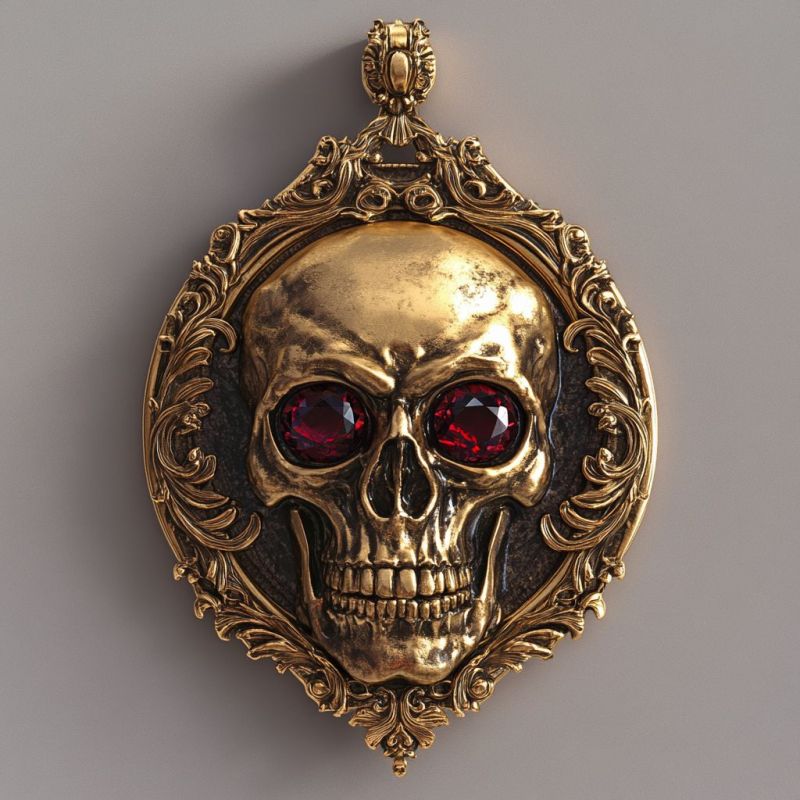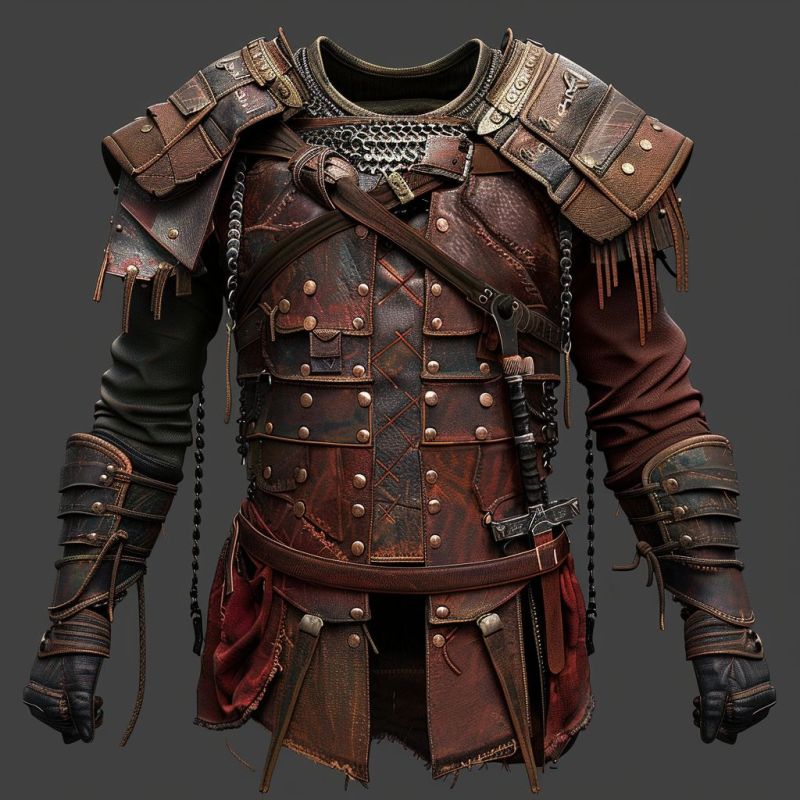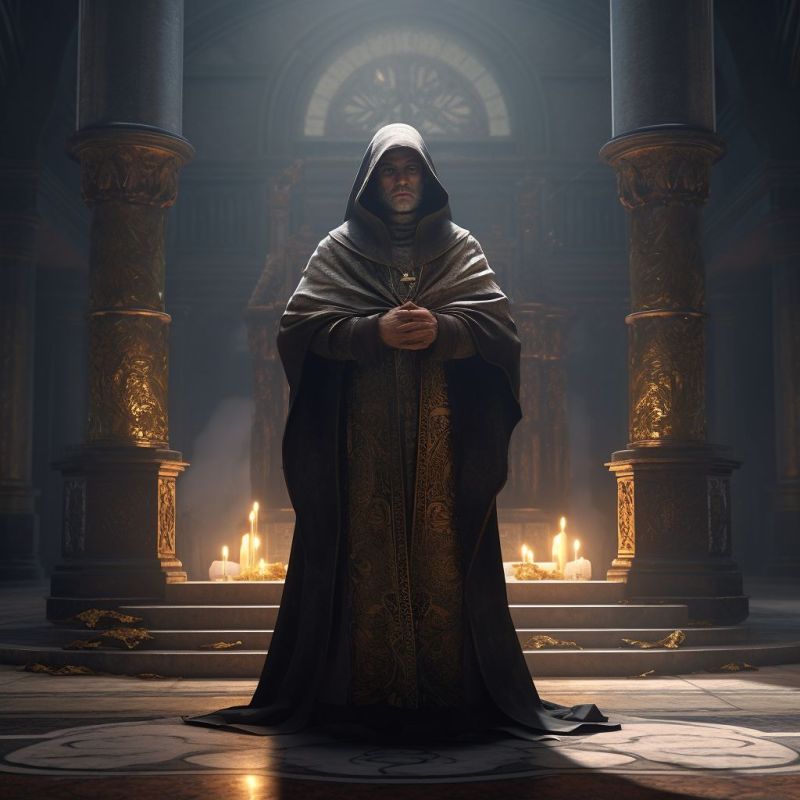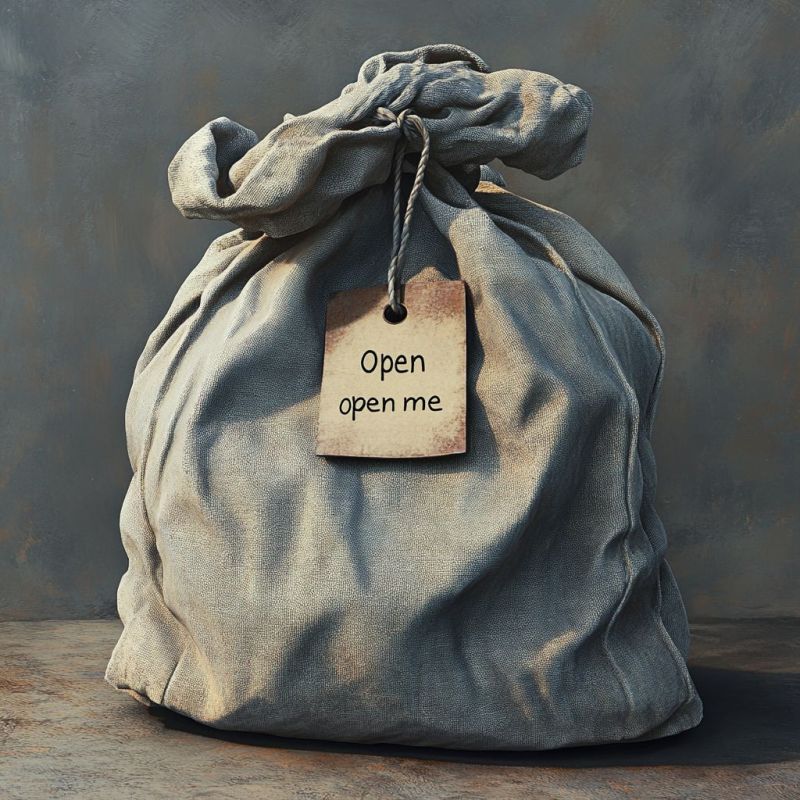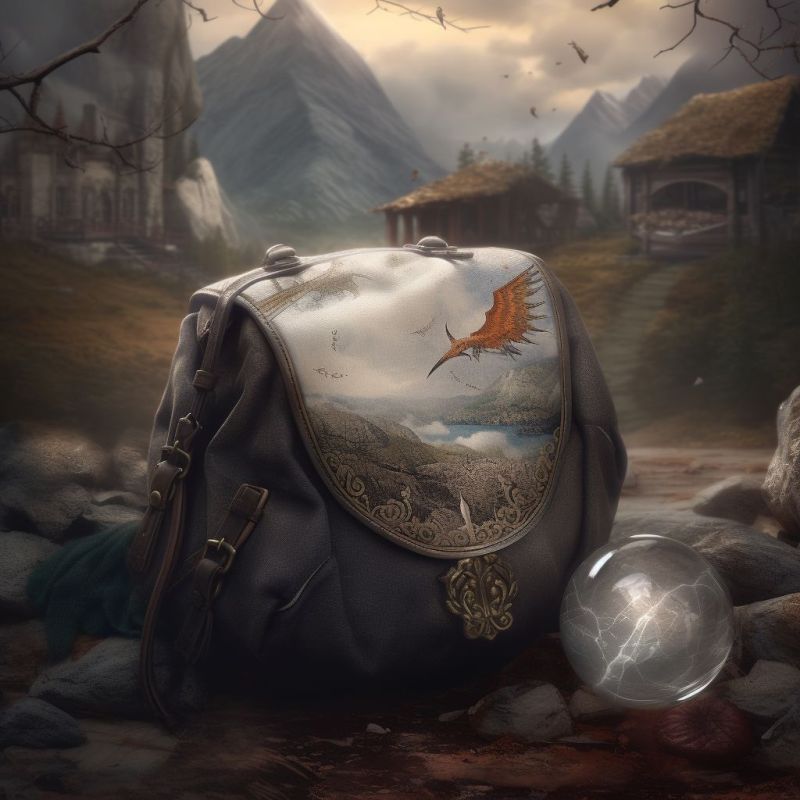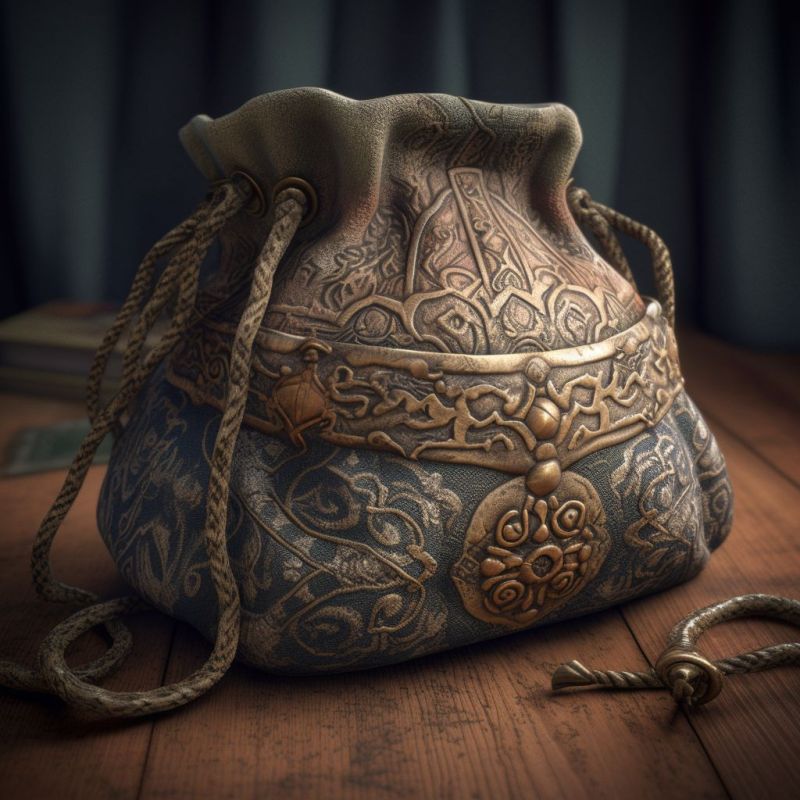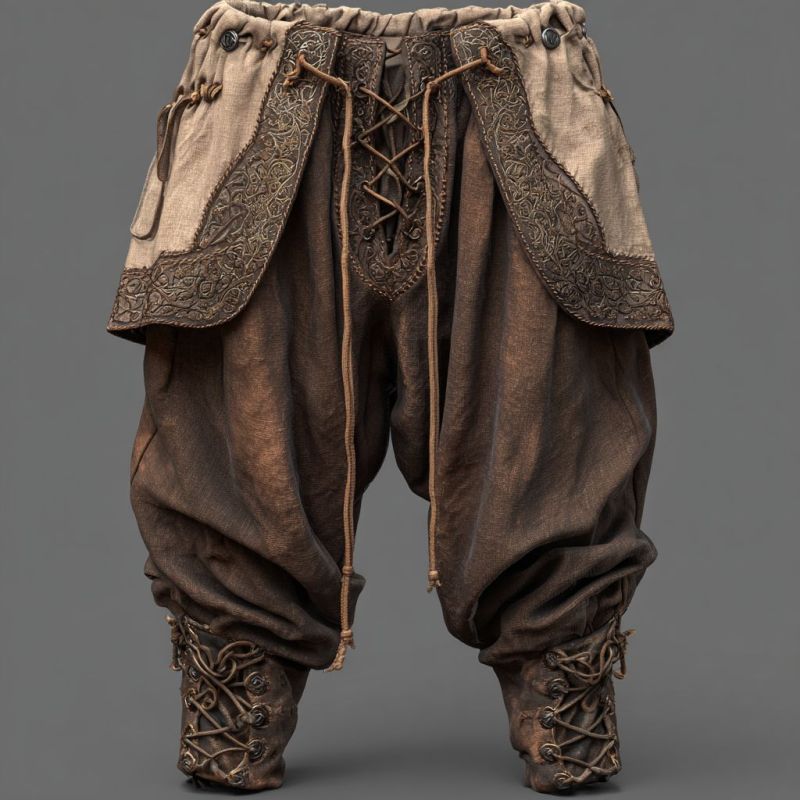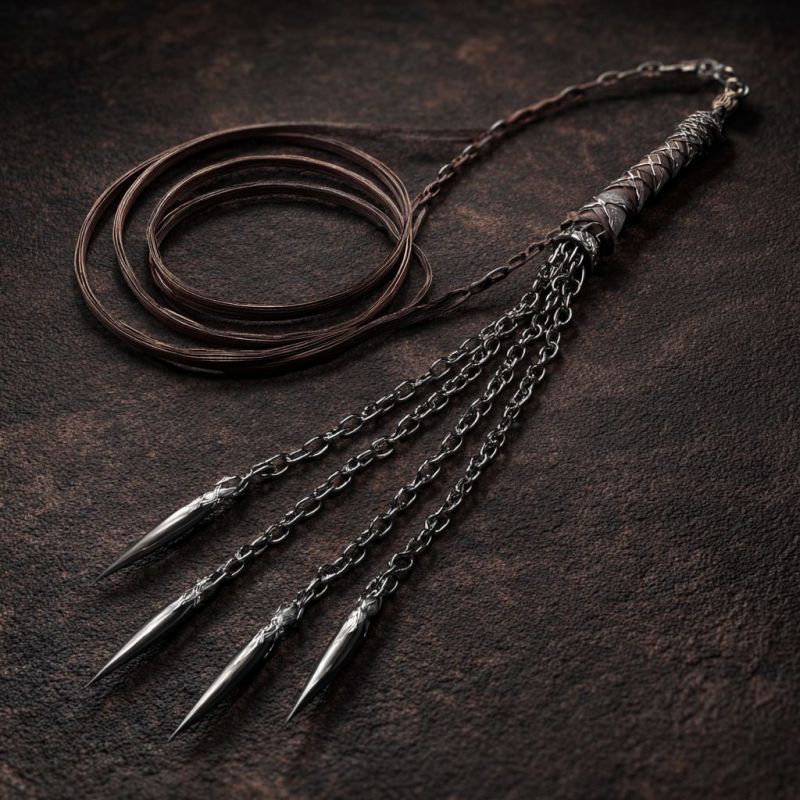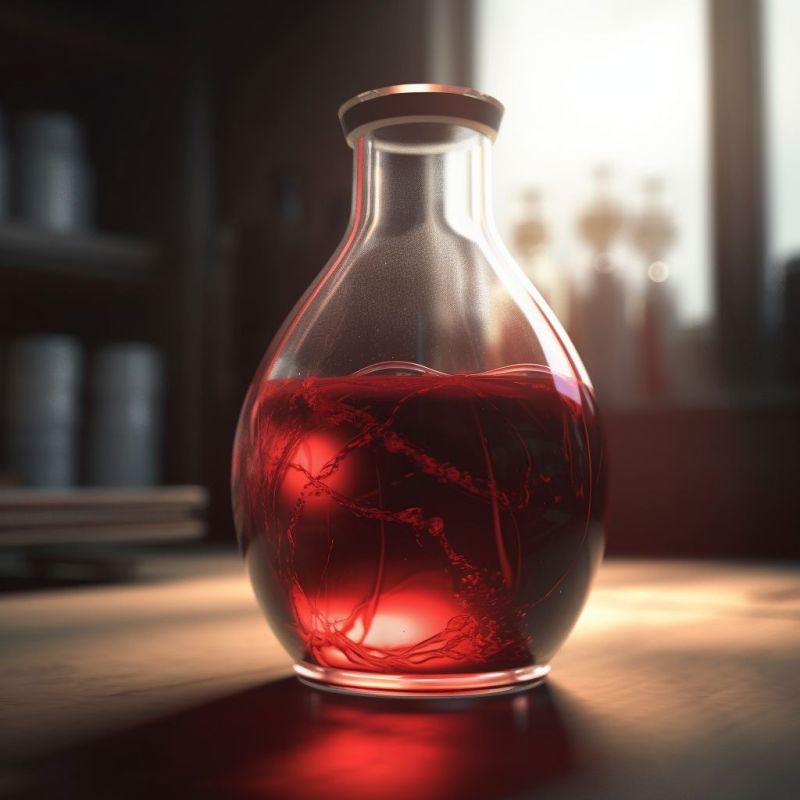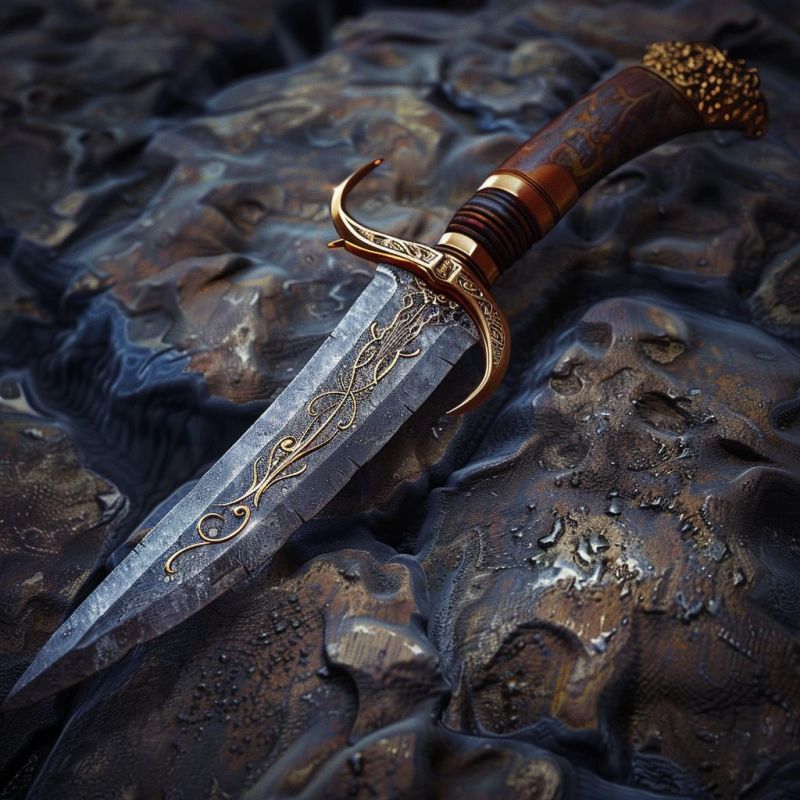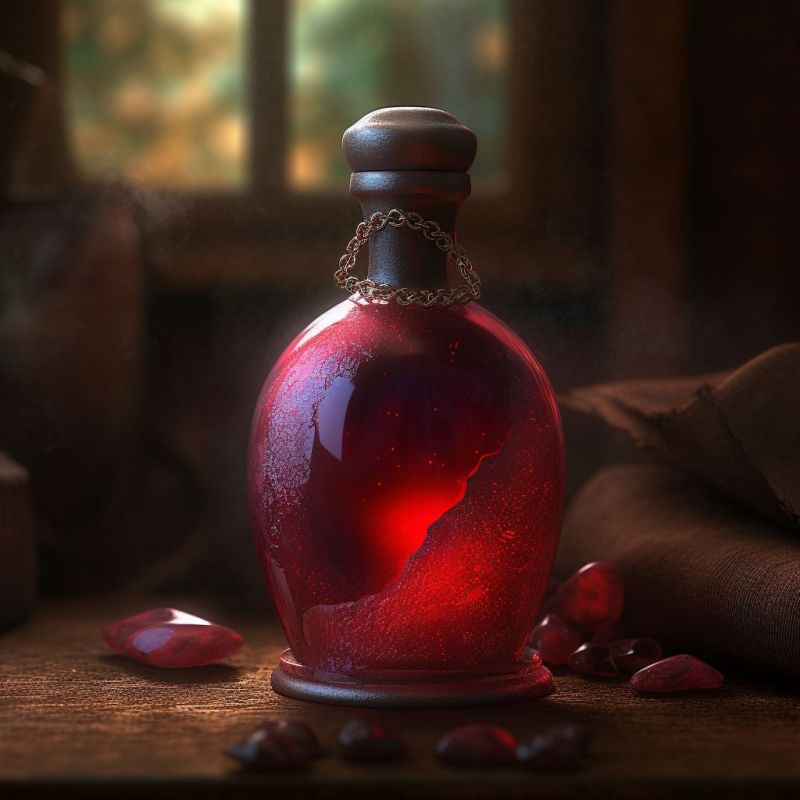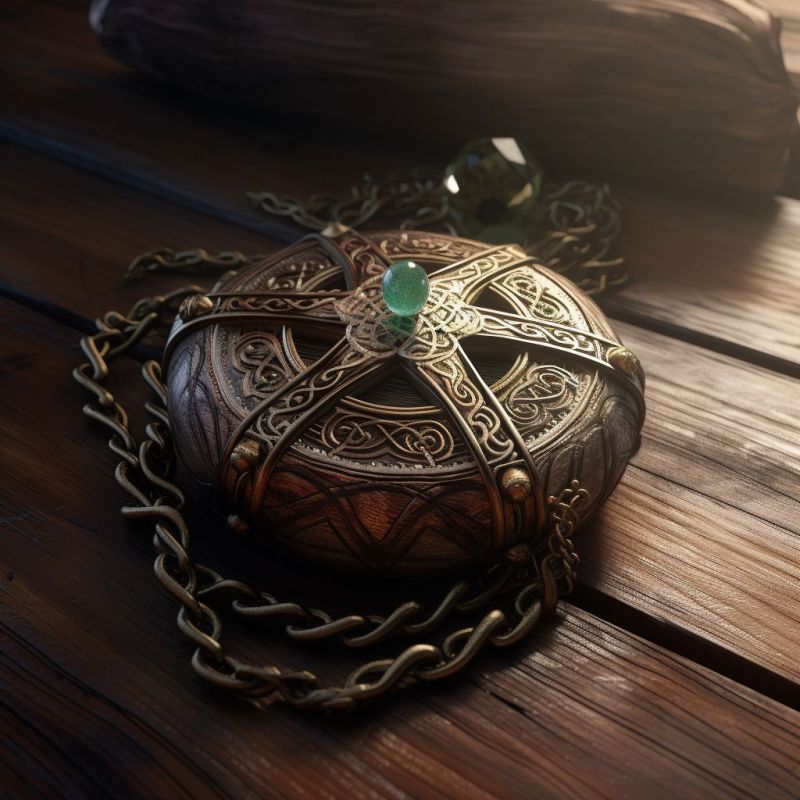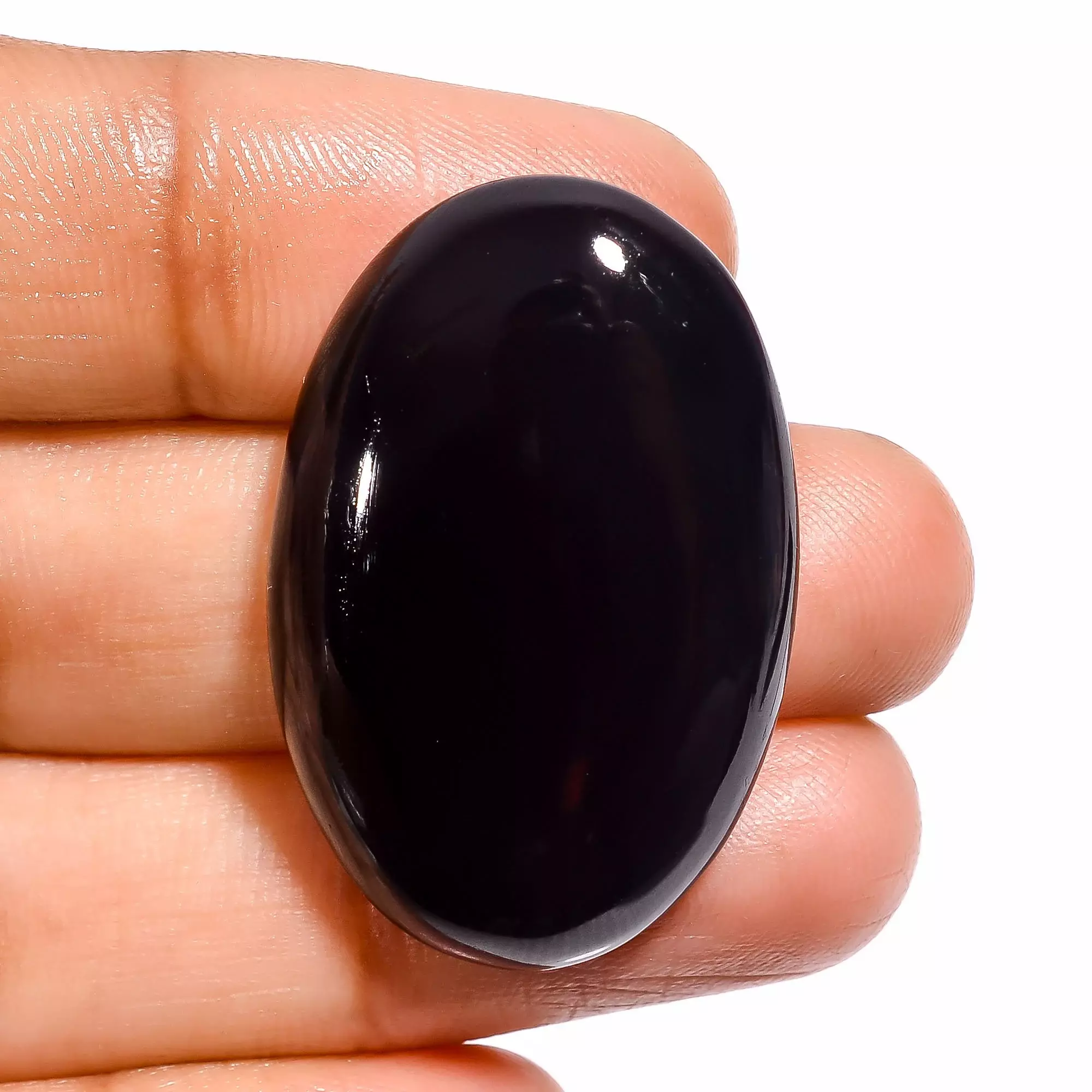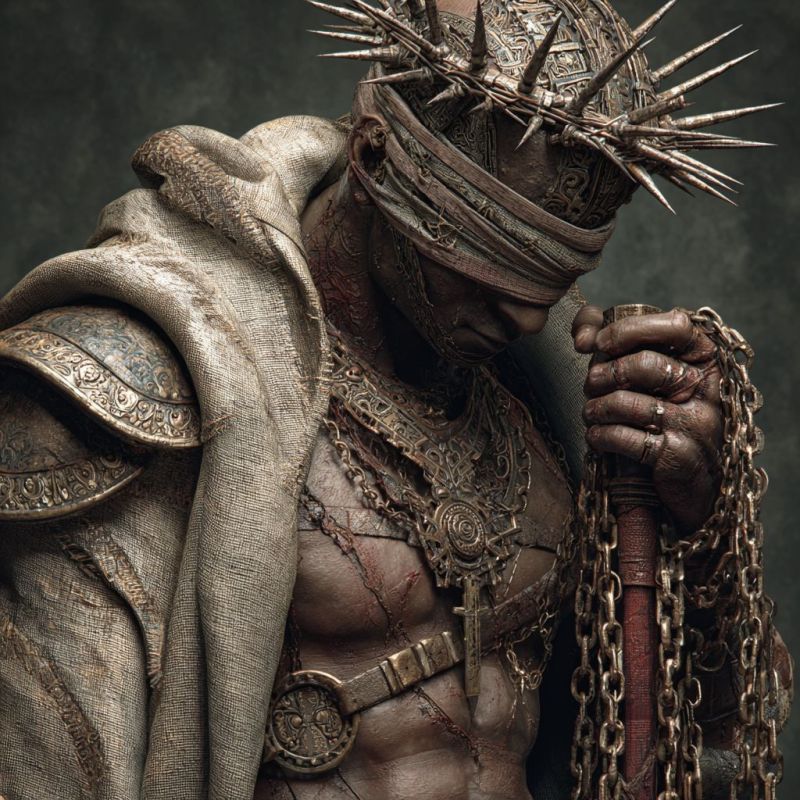12
Duke Vol Naga
Core Abilities
 Full Abilities
Full Abilities
|
Short Rest
|
|
1 |
2
|
 Abilities
Abilities
|
Dhampir Regeneration
|
|
1 |
1
|
|
|
Demoralizing Shout
|
|
1 | ||
|
Frightening Shout
|
|
1 | ||
|
Terrifying Presence
|
|
1 |
3
|
|
|
Minor Divine Calling
|
|
3 |
1
|
|
|
Spiritual Rejuvenation
|
|
11 |
 Quick Abilities
Quick Abilities
|
Agile Dodge
|
|
1 | ||
|
Subtle Stride
|
|
1 | ||
|
Bullwhip
|
|
1 |
 Free Abilities
Free Abilities
|
Overrun
|
|
0 |
1
|
|
|
Unyielding Command
|
|
1 |
1
|
 Reaction Abilities
Reaction Abilities
|
Preemptive Strike
|
|
1 |
1
|
|
|
Enduring Man
|
|
10 |
1
|
Core Attacks
Natural Weapons
| Weapon | ||||
|---|---|---|---|---|
|
|
|
Bite (d6)
|
||
|
|
|
Slam (d4)
|
Equipped Weapons
| Weapon | ||||
|---|---|---|---|---|
|
|
|
The Gospel
10 ft.
|
 Attack Abilities
Attack Abilities
|
Knockout Strike
|
|
0 | ||
|
Dhampir Bite (2d6)
|
|
1 |
3
|
|
|
Chain Snap
|
|
1 |
6
|
|
|
Cracklash
|
|
1 |
6
|
|
|
Ensnaring Whip
|
|
1 |
6
|
 Movement
Movement
Passive Abilities
|
Human Origins
|
|
1 | |
|
Sunlight Sensitivity
|
|
1 | |
|
Thirst of Isha
|
|
1 | |
|
Rite
|
|
1 |
5
|
|
Your Place is Here
|
|
1 | |
|
Your Time is Not Now
|
|
1 | |
|
Divine Conversion
|
|
1 | |
|
Faith in Self-Sacrifice Spells - 1st Level
|
|
1 | |
|
Healthy Body
|
|
1 | |
|
Iron Resolve
|
|
1 | |
|
Extra Weapon Damage - Lifedraining (1d6)
|
|
1 | |
|
Enhanced Healing
|
|
1 | |
|
Feat - Priest (2nd)
|
|
2 | |
|
Feat - Priest (4th)
|
|
4 | |
|
Human Pedigree
|
|
5 | |
|
Faith in Self-Sacrifice Spells - 2nd Level
|
|
5 | |
|
Feat - Priest (6th)
|
|
6 | |
|
Faith in Self-Sacrifice Spells - 3rd Level
|
|
9 | |
|
Human Provenance
|
|
10 | |
|
Feat - Priest (10th)
|
|
10 |
Cantrips
| Name | AOE | Effect | |||||||
|---|---|---|---|---|---|---|---|---|---|
|
|
Divine Guidance
|
|
— |
1 hr |
|
||||
|
|
Far Hearing
|
|
— |
1 min |
|||||
|
|
Hand of Radiance
|
|
— |
|
|||||
|
|
Sacred Flame
|
|
— |
|
|||||
|
|
Soul Collapse
|
|
— |
|
|||||
|
|
Spare the Dying
|
|
— |
1st Level Spells
| Name | AOE | Effect | |||||||
|---|---|---|---|---|---|---|---|---|---|
|
|
Blessings Upon You
|
|
|
— |
1 min |
|
|||
|
|
Cure Wounds
|
|
— |
|
|||||
|
|
Divine Healing
|
|
|
— |
|
||||
|
|
Frightening Smite
|
|
— |
1 min |
|||||
|
|
Guiding Bolt
|
|
— |
|
|||||
|
|
Healing Word
|
|
— |
|
|||||
|
|
Inflict Wounds
|
|
— |
|
|||||
|
|
Pain Anchor
|
1
|
|
— |
1 min |
|
|||
|
|
Rebuke
|
2
|
|
— |
|
||||
|
|
Shared Wound
|
1
|
|
— |
|
2nd Level Spells
| Name | AOE | Effect | |||||||
|---|---|---|---|---|---|---|---|---|---|
|
|
Alleviating Touch
|
|
— | 10 mins | |||||
|
|
Divine Aid
|
2
|
|
30 |
|
||||
|
|
Gift of Pain
|
1
|
|
— | 1 min | ||||
|
|
Loyal Vassal
|
|
— |
1 hr |
|||||
|
|
Restoration, Adept
|
|
— | ||||||
|
|
Spiral of Light
|
|
— | 1 min |
|
||||
|
|
Surge of Flame
|
|
10 |
1 min |
|
3rd Level Spells
| Name | AOE | Effect | |||||||
|---|---|---|---|---|---|---|---|---|---|
|
|
Blood Healing
|
|
20 |
|
|||||
|
|
Crimson Beacon
|
1
|
|
— |
1 min |
|
|||
|
|
Fatal Bolt, Adept
|
|
— | 1 min |
|
||||
|
|
Searing Light
|
|
— |
|
|||||
|
|
Summon Faithful Warrior
|
|
— | 1 min | |||||
|
|
Vitality Transfer
|
|
— |
|
On Hand
No On Hand Inventory
Containers
No inventory in container.
Acolyte of the Faith
-
 Traits
Traits -
None
-
 Ideals
Ideals -
None
-
 Bonds
Bonds -
Bond with other like minded individual.
-
 Flaws
Flaws -
Believes Pain is Love and Joy.
Once Numb, Now Broken in Love
Pilgrim of Pain | Harbinger of the First Embrace | Flagellant of Neevra
The Numb Curse
Once, Vol’ Naga was a man of great esteem—a noble of silken words and iron rule, born to lineage and luxury. His estate overlooked sun-drenched vineyards and golden hills, and his name was praised in courts for justice and wisdom.
But beneath the silks and the smiles, Duke Vol’ Naga bore a silent, unrelenting curse:
He could not feel.
Not joy in laughter. Not pain in injury. Not even love in an embrace.
Doctors diagnosed him with a rare nerve condition. Clerics claimed it was a punishment for ancestral pride. Witches and voodoo women bled animals onto his flesh, burning herbs, whispering in tongues.
But he remained numb—a man alive in flesh but dead in soul.
The Pilgrimage of Despair
Vol’ Naga came to believe that he was forgotten by the gods. Until a servant brought him rumors of a figure—Priestess Salma, a blindfolded woman who wandered plague towns singing to corpses and leaving black tears in her wake.
Desperate, the Duke pursued her through crumbling villages and ash-choked valleys. He finally found her in a broken-down shrine where even the flies had stopped buzzing.
She greeted him without sight.
Priestess Salma:
“You carry silence in your blood. She hears it. She has wept for you longer than you’ve been alive.”
She gave him a vial of black liquid, thick as tar and cold as death.
“Drink. And know her love.”
He drank.
And the world ended.
The First Embrace
What he felt cannot be described in mortal language. Every nerve he thought long-dead awoke in torment—screaming, burning, flayed in divine fire. He collapsed, not screaming, but silently sobbing—his body incapable of sound, his mind shattering under the weight of divine grief.
In the void of unconsciousness, he saw her.
Neevra.
A towering woman rising from an ocean of black tears. She covered her eyes with her hand. She wept for him. Only for him.
Neevra, the Goddess Who Weeps for Thee:
“You are my child. You are in so much pain. And that pain... shows you love.”
She embraced him—not as a lover or savior—but as a mother mourning a child she could not save.
And for the first time in his cursed life—Duke Vol’ Naga wept.
The Chain of Sorrows
He awoke on cold stone. Priestess Salma was gone. The shrine, abandoned.
But something new remained beside him:
A black iron chain, spiked and barbed, still wet with his blood, knotted in symbols of mourning. It coiled like a serpent at his feet.
It was not there before.
He did not question it.
He wrapped it around his arm, and carried it out into the world.
The Crimson Pilgrim
When he returned to his estate, he sold everything. Titles, land, paintings, gold—all given to the poor or burned in offerings. His servants fled, horrified by the self-flagellating figure that had replaced their Duke.
He spoke the last words he heard in the dream aloud:
“Love... is found only through suffering. She weeps for all—even those who spit in her face.”
He left his lands behind, becoming a wandering Pilgrim, searching for the Church of Salvation, yearning to suffer again... to feel again... to earn the warmth of the First Embrace once more.
Town Hall
Wickermore Hallow
Foxwillow’s Town Hall looms in the heart of the settlement, where the farming folk once gathered at twilight. A crooked billboard stands outside, covered with weathered papers that cling to it stubbornly. William Lodge, who usually holds meetings here, now scours the building for clues while the characters investigate.

